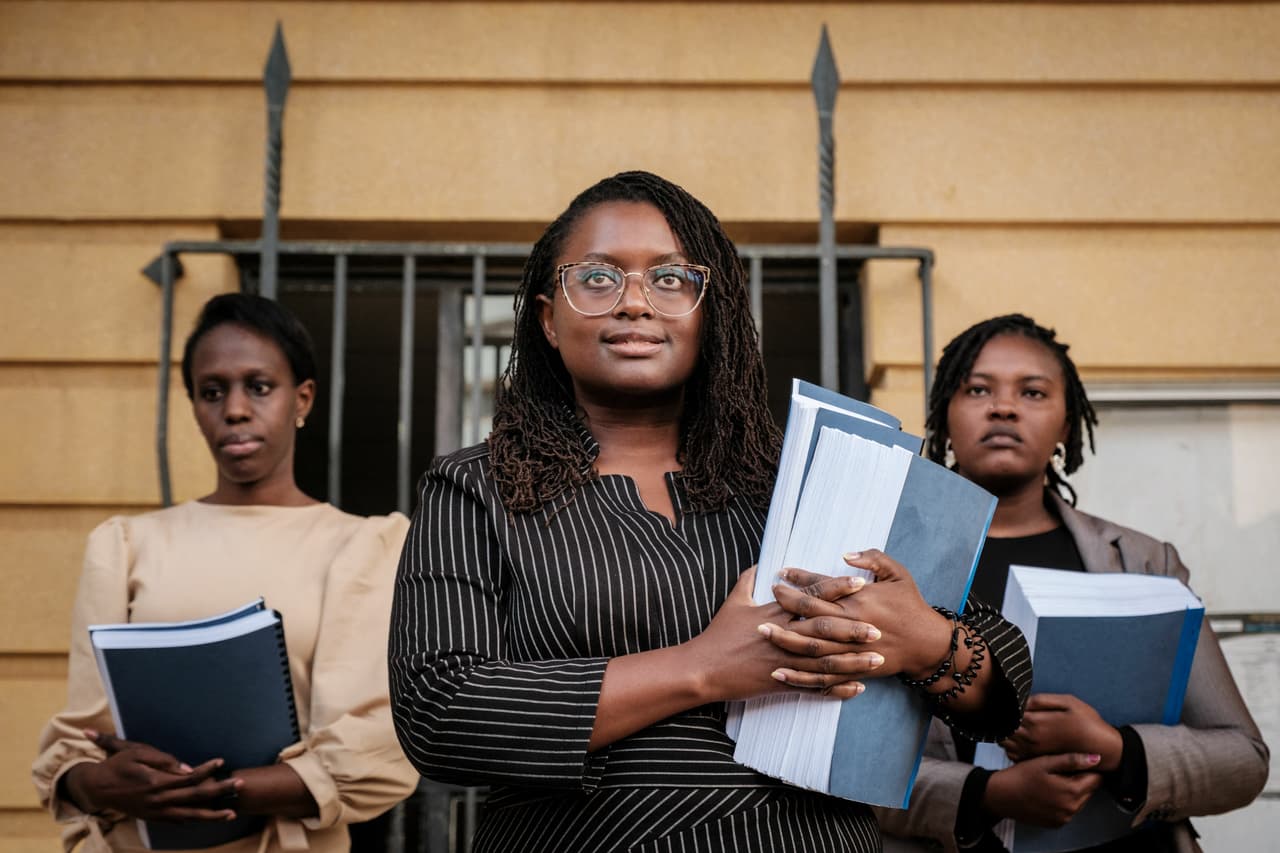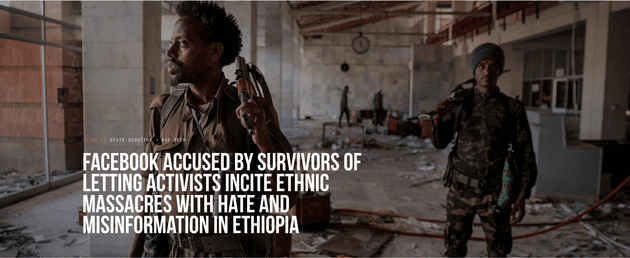
Meta sued for £2bn over Ethiopia hate speech revealed by Bureau
Meta is being sued for almost £2bn over human rights abuses and killings in Ethiopia caused by hate speech on Facebook.
The petition, filed in the Kenyan courts on Tuesday, cites the Bureau and Observer’s reporting from February, which told the stories of Ethiopian civilians who say their family members were killed as a result of posts on Facebook.
The lead complainant in the case, Abrham Meareg, says that his father, a professor at Bahir Dar University in Amhara, Ethiopia, was murdered after two Facebook posts targeted him as a member of the Tigray ethnic group.
In October 2021 Abrham reported two posts that had named his father, Professor Meareg Amare Abreha. Both included his photo and one identified the neighbourhood in which he lived. The posts made false claims that he was corrupt and was helping the Tigrayan People’s Liberation Front, a paramilitary group that was at war with the Ethiopian government.
Neither post was taken down before November 3, when Professor Meareg was followed home from work by men wearing Amharan special forces uniforms. Amhara has sided with the national government in the conflict.
The men shot Professor Meareg twice, once in the shoulder and once in the leg, and then prevented his family from helping him while he died over the next seven hours.
Abrham and his family have been unable to return to their home in Bahir Dar and he has now fled to the US where he is claiming asylum. One of the posts he reported was taken down after his father was murdered. Another was still up earlier this month.
The Bureau first spoke to Abrham while reporting on how Facebook was allowing misinformation and hate speech relating to the conflict in Ethiopia to spread and remain on its platforms, causing harm. Although his account was not included in the piece, with Abrham’s permission the Bureau introduced him to Foxglove, the legal team who are now supporting his case.
The posts targeting Professor Meareg are just two of many that have spread hate and incited violence towards different ethnic groups in Ethiopia, which has seen many ethnically motivated killings during a brutal conflict that has killed hundreds of thousands. The petition alleges that Meta has repeatedly failed to take down posts calling for violence, including those promoting concentration camps and rape as a weapon of war.
The petition cites two instances from the Bureau’s reporting: the killing of Gebremichael Tewelmedhi and eleven others in the Amharan city of Gondar after posts called for the cleansing of Amhara territories; and the murder of Hadush Gebrekirstos who was heard speaking Tigrayan in the Ethiopian capital Addis Ababa at a time when there were numerous posts calling for the ethnic cleansing of Tigrayans.
 The Bureau first covered Facebook's failure to moderate hate speech and misinformation about the conflict in Ethiopia in February of this year
The Bureau first covered Facebook's failure to moderate hate speech and misinformation about the conflict in Ethiopia in February of this year
As the Bureau and the Observer have reported, Meta has been slow to help fact checkers and human rights activists tackle hate and misinformation in Ethiopia, despite having known of the dangers content on Facebook posed in the country since at least 2020.
The other claimant in the case is Fisseha Tekle, a lawyer working for Amnesty International in Kenya who claims to have been targeted on Facebook over his work on Ethiopia. Amnesty and Global Witness are among the interested parties named in the petition.
The petition aims to “hold Meta accountable for blatant human rights violations and human suffering caused by its business decisions”.
It further claims that “it is not accidental that Facebook users are in an ecosystem rife with inciteful, hateful and dangerous content. This ecosystem has been created by design.”
The petition is calling on Meta to:
set up two funds for victims of hateful content and those shown sponsored posts containing hate, amounting to almost £2bn,
alter its algorithms and moderation practices to stop the spread of “inciteful, hateful and dangerous content”,
take steps to ensure it does not do less to tackle hate speech and incitement to violence in Africa than it does elsewhere.
A spokesperson for Meta said: “We have strict rules which outline what is and isn’t allowed on Facebook and Instagram. Hate speech and incitement to violence are against these rules and we invest heavily in teams and technology to help us find and remove this content. Our safety and integrity work in Ethiopia is guided by feedback from local civil society organisations and international institutions.
“We employ staff with local knowledge and expertise, and continue to develop our capabilities to catch violating content in the most widely spoken languages in the country, including Amharic, Oromo, Somali and Tigrinya.”
For further information about its work in Ethiopia, Meta directed the Bureau to a blog post about its work to “Protect People in Ethiopia” published in November 2021, six days after Professor Meareg’s murder.
Header image: The Kenyan lawyer Mercy Mutemi speaks to the press after filing the lawsuit against Meta at Milimani Law Courts in Nairobi. Credit: Yasuyoshi Chiba/AFP via Getty Images
Reporter: Jasper Jackson
Global editor: James Ball
Editor: Meirion Jones
Production: Frankie Goodway
Fact checker: Alice Milliken
Our reporting on Big Tech is funded by Open Society Foundations. None of our funders have any influence over the Bureau's editorial decisions or output.
-
Subject:
-
Area:




